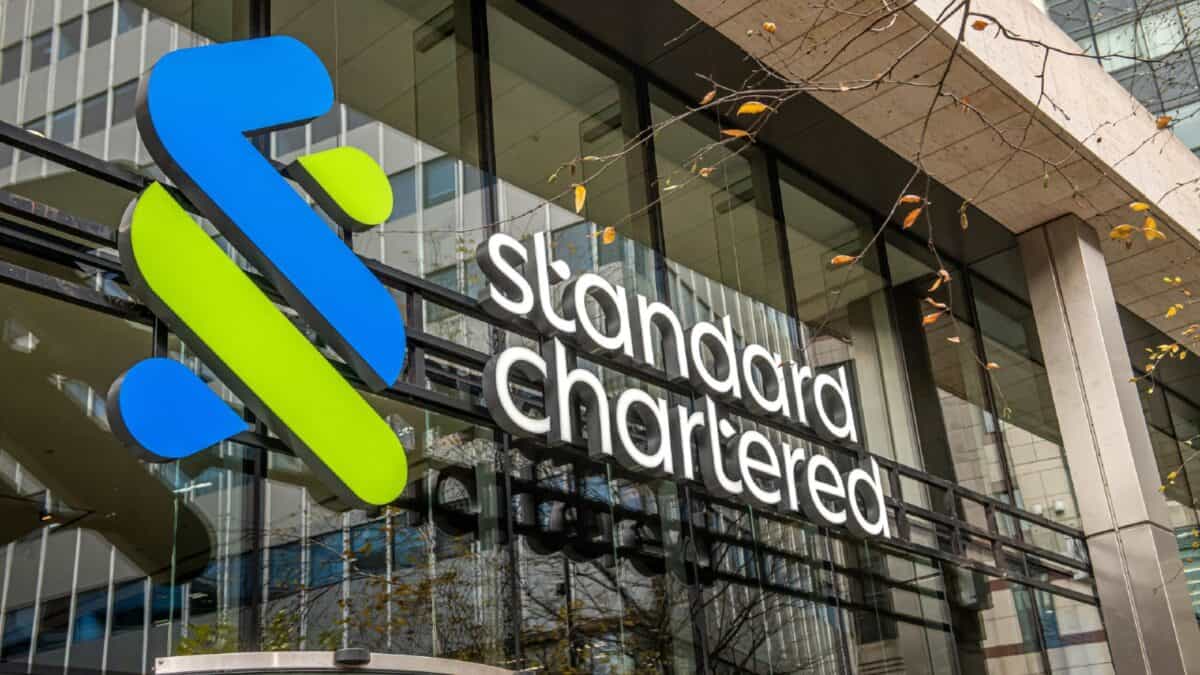The release of Q3 results has knocked the Standard Chartered (LSE:STAN) share price down significantly so far today (26 October). The banking stock fell by as much as 18% before rallying, marking the biggest one-day fall since 2012. Clearly, investors were unimpressed by the news. But with the stock still up 17% this year, it’s worth having a deeper look.
Let’s talk about China
Underlying pre-tax profit fell by 2% versus the same period last year. Under normal circumstances, this doesn’t seem to be a disaster. Yet the reason why it missed expectations for higher profit was due to problems in China.
Standard Chartered took a $186m hit from the Chinese property market, as well as an impairment charge of $700m on China Bohai Bank. When I compare the exposure the firm has to China versus other peers such as Barclays or Lloyds, it’s significantly higher.
Should you invest £1,000 in Lloyds Banking Group right now?
When investing expert Mark Rogers has a stock tip, it can pay to listen. After all, the flagship Motley Fool Share Advisor newsletter he has run for nearly a decade has provided thousands of paying members with top stock recommendations from the UK and US markets. And right now, Mark thinks there are 6 standout stocks that investors should consider buying. Want to see if Lloyds Banking Group made the list?
The slowdown in growth in the region this year has been a prominent story. Even though investors were likely aware of the ties the bank had to China, I doubt many expected such a large hit on the quarterly earnings.
Good points to note down
If we park the China problem to one side, the rest of the results were fairly mixed. Income rose by 6% versus Q3 2022, with the Wealth Management division doing particularly well.
Net interest income rose by 20%, reflecting the move higher in interest rates over the past year. However, I do note that the bank has now hedged the interest rate exposure. This means that if rates continue to rise, it won’t benefit as much. But if rates fall, it will be protected. Only time will tell if this was a smart decision to make.
Despite all the details, the management team said it holds to the current full-year outlook. This includes expecting income growth of between 8-10%.
Mulling it over
Clearly, the hit from exposure to China has shocked investors. This is reflected in the sharp fall in the share price. Yet if we look beyond that, I don’t see any major reasons for concern.
With a price-to-earnings ratio of 8.55, I think the banking stock does look good value. However, this is true of many shares in the banking sector right now.
Given that the fate of Standard Chartered is tied heavily to how China performs, it boils down to how an investor sees the country doing over the next year or so. Yet given I can buy cheap banks that don’t have a China risk, I’m not sure it makes that much sense to buy it now.
The reward from buying Standard Chartered shares is likely much higher than other UK banks if things work out well. But for those with a lower risk tolerance, I don’t think it’s a great idea.








